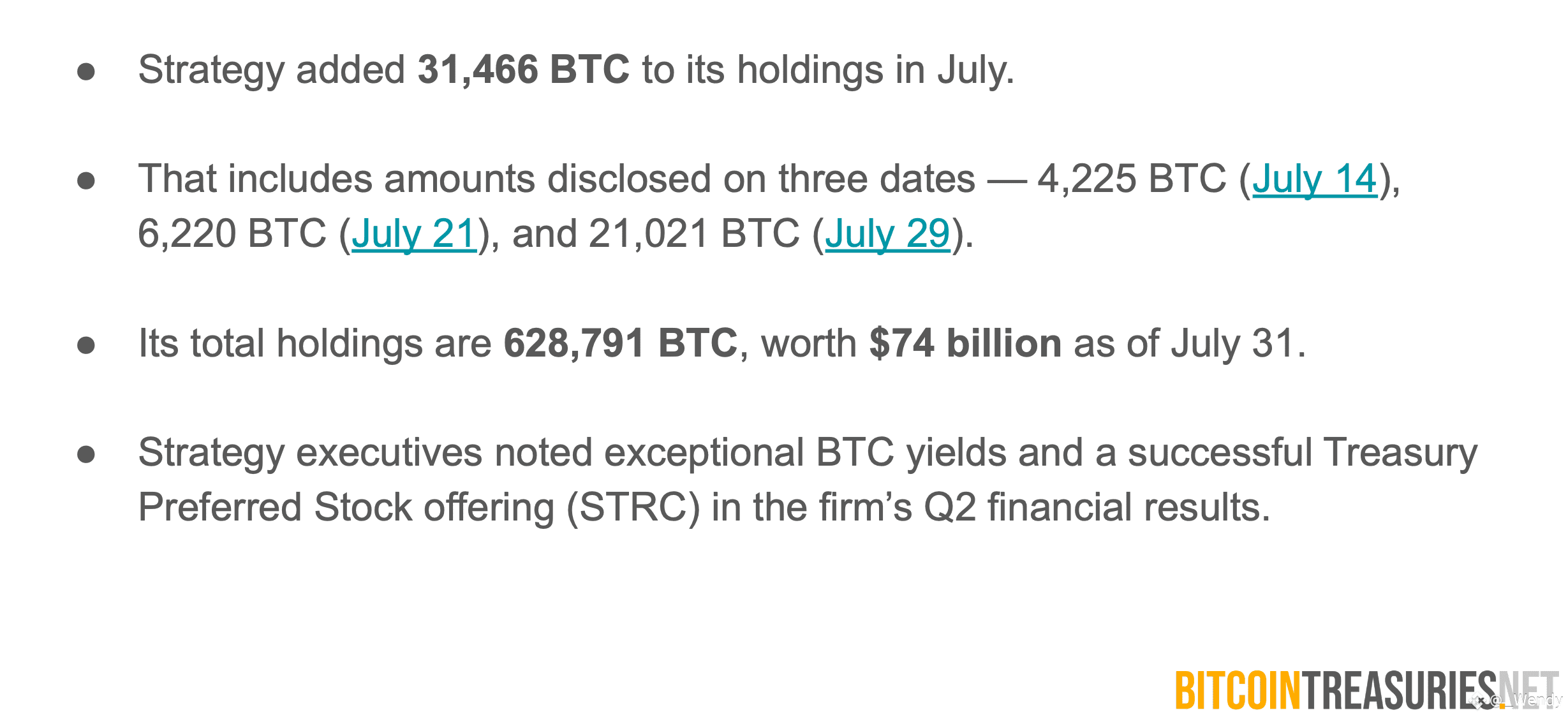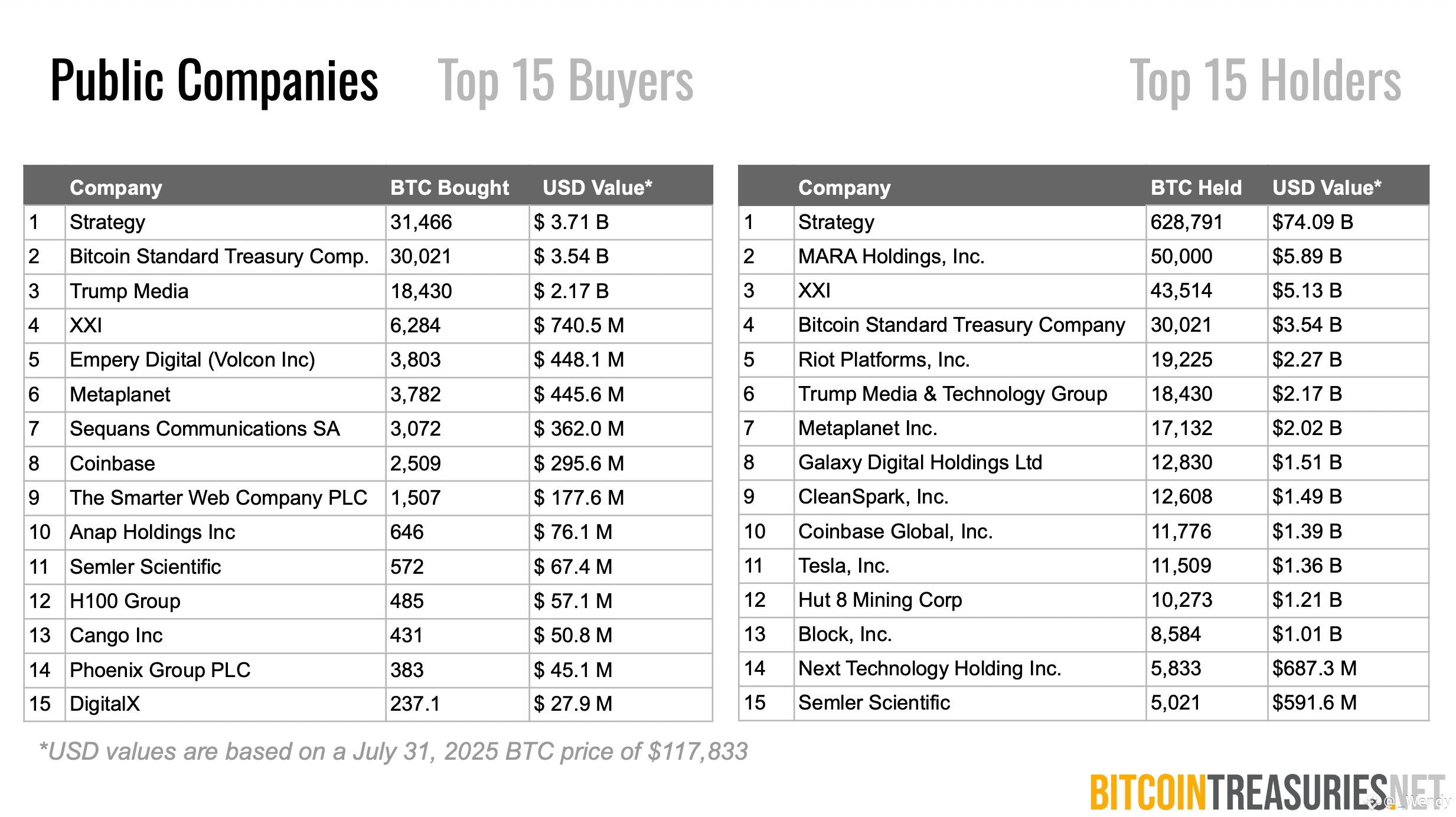Public and private companies added 107,082 bitcoin to their treasuries in July 2025, accelerating a trend of institutional adoption now valued at $428 billion across tracked entities, according to Bitcoin Treasuries’ July Adoption Report.

Bitcoin Treasuries Report: Corporate Adoption Accelerates
The report published by bitcointreasuries.net found total holdings by all monitored entities – including companies, exchange-traded funds (ETFs), governments, and funds – reached 3.64 million BTC by month-end. Public companies alone hold 955,048 BTC, while private firms hold 292,364 BTC.

Bitcoin Treasuries’ researchers note that significant net additions by companies accounted for nearly two-thirds of the 166,000 BTC added across all categories tracked in July. Major purchasers dominated the activity. Strategy (MSTR) added 31,466 BTC, bringing its total to 628,791 BTC ($74B).

New entrant Bitcoin Standard Treasury Company (BSTR) disclosed 30,021 BTC ($3.54B), and Trump Media & Technology Group (DJT) added 18,430 BTC ($2.17B). Other significant buyers included Metaplanet, XXI, and Coinbase, the Bitcoin Treasuries’ analysis detailed.
Beyond bitcoin, companies also allocated funds to altcoins. Ethereum holdings by tracked entities total roughly $10 billion, Solana holdings reached $530 million, and firms announced plans exceeding $2 billion for future purchases of coins like BNB and XRP, Bitcoin Treasuries noted.
The researchers anticipate continued corporate acquisitions, driven by dedicated buying strategies, persistent ETF inflows, expectations of a sustained bull market, and potential U.S. government bitcoin purchases, solidifying bitcoin’s role in corporate finance. If momentum holds, institutional positioning could become a defining force in global capital allocation strategies for the years ahead.
Rising commitments to multiple digital assets hint at a broader shift toward diversified crypto treasuries. This evolving approach signals that corporations may increasingly treat blockchain-based assets as strategic reserves, blending traditional portfolio management with the emerging economics of decentralized finance (DeFi).




